This work was submitted to the University of Portsmouth in May 2022, in line with the guidelines for the degree programme of International Relations with Languages.
Overview
Maritime piracy is a challenge in the 21st century because of how it affects international trade. The insecurity over the delivery of transported goods is among the more significant challenges posed by piracy1. The rise of globalisation, described as the growing interconnectedness between states2, highlights the growing dependence on maritime trading routes which is vital to the economic development of many coastal states.
The Gulf of Guinea (GoG), where Nigeria is located, possesses a high number of natural oil resources which have been put at risk due to the rise in oil theft. As Nigeria has no narrow straights to restrict shipping, it is more susceptible to violent pirate attacks than other areas in the region3. Nigeria has some of the biggest offshore oilfields and the seizure of oil is a lucrative market for pirates as the oil can then be sold on the black market4. The estimated number of stolen oil and goods is reported to be $1 million per year as of 2021, and this impacts the global economy, trade and distribution of oil worldwide5. It is important to note, however, that oil theft was more prominent in the early 2010s, with estimated losses totalling between $20 million and $25 million5. Furthermore, these numbers are estimations, which highlights the further challenge of reporting associated piracy costs6. This data is important for revealing some of the associated costs of oil theft in the region. Nonetheless, high losses due to piracy post-2010s also represent a disruption to the global economy because of the strategic importance of Nigeria.
The strategic importance of Nigeria is underlined by the fact that Nigeria supplies a fifth of oil to the US. The relationship between these two states is crucial as the US is also the largest foreign investor in Nigeria7. This means that Nigeria’s position becomes even more critical in the adequate shipping times for worldwide exports. With the rise in attacks, the position of Nigeria on the GoG becomes more prevalent because it is left open for more attacks. Moreover, insecurity from other regions plays a massive role in delays and security capabilities. Although in recent years the number of personnel of the Nigerian Navy has grown along with its capabilities, neighbouring states on the GoG must also continue to increase in number and capability8.
Any delay in delivery has knock-on effects on the supply guarantee of oil, which is critical for the energy security of the region. The problem with energy security and maritime piracy is related to the increased violence that Nigeria is seeing in its territory9. Piracy particularly on the GoG has increased in violence with attacks targeting lucrative cargo ships carrying oil10. Attacks on tankers with oil and other cargo can also cause spillages in the oceans which represents yet another challenge of piracy in the 21st century, namely a threat to the oceans and human life in Nigeria11. Since 2015, the Nigerian President has ordered the clean-up of oil spillages in the Niger Delta, illustrating the extent of the impact of oil leaks, from human and marine life to overall economic growth12.
History
Piracy is a complex maritime security issue and it is crucial to consider the historical background of piracy to prevent further attacks. Piracy is not a new concept – it dates back centuries, taking place in different ways before the 21st century’s highly sophisticated and premeditated operations13.
Piracy in the Niger Delta traces back to the end of Nigeria’s colonial era in 1960 when ethnic tensions were left unresolved after British rule14. As a result, the Civil Biafra War that ensued in 1967 dealt with the fall-out of ethnic tensions, particularly on the issue of the majority Ibo-group who, after British colonial rule, excluded non-Ibo inhabitants in the Delta from oil revenues15. According to Pérouse de Montclos16, this encouraged a protectionist stance towards its natural resources, which heightened tensions when different governments and non-state actors had differing views on the handling of these resources. Importantly, the civil war saw the population cut off from its food supply and began to look for alternatives to combat the economic hardships of the war17.
Given that the Biafra War ended in 1970 and the 1973 OPEC oil price spike plagued the 1970s and 1980s, the Niger Delta saw massive increases in oil revenues with revenues at 82% of local government incomes by 197918. While revenues were split between the Nigerian government, military, and major oil companies such as Shell, local government officials failed to utilise these revenues in a way that would benefit the local Delta population19. The lack of revenue-sharing sparked grievances in the Delta region because related environmental issues, including pollution from oil production, began to flare up19. Local marginalised groups in the Niger Delta including the Ogoni’s aimed to control oil resources and achieve self-determination along the way in the mid-1990s20. Military and political elites continued to ignore the demands of the Delta population, which leads to the tensions being understood as a self-serving motive or driven by the economic and environmental degradation of the Delta.
At the turn of the new century, a substantial change in the trend of piracy was noticed post-2000 as the oil companies began to liberalise due to a failed supply of petroleum products as well as an increase in importations21. This had an impact on resistant groups, and this caused the emergence of militant groups. The result of tensions between the government and powerful non-state actors, including the infamous Movement for the Emancipation of the Niger Delta (MEND), was created in 2004. MEND is not the problem itself but only highlights existing problems of unsatisfied groups of insurgents, fighting against the government’s control of oil22. These groups reflected the view of citizens of the Niger Delta and mobilised some people brave enough to seize resources from the State and dominant oil companies such as Shell23. Also, since the turn of the new century, piracy in the GoG grew steadily, rising from 25 in 2005 to 59 cases by 2008. Although this does not seem significant, the figure is astronomical when converting these numbers into money lost over the last couple of decades.
The Success of a Strategy
The launch of the Integrated National Security and Waterways Protection Infrastructure, also known as the Deep Blue Project (DBP) was pivotal in the Nigerian maritime domain and has many merits in preventing piracy. On June 10, 2021, the programme was launched and aimed to provide surveillance in the Niger Delta to tackle piracy on land, sea, and air by using the latest technology24. The International Maritime Organisation (IMO) highlighted the effort of the DBP in addressing the gap in the Nigerian maritime domain because the Project combines the effort of antipiracy law, prosecutions and regional responses25.
The first success of the project lies in its ability to prosecute pirates who commit acts of piracy. Before the implementation of the DBP, the prosecution was difficult to carry out and this affected the rate at which pirates were being taken to court. Implementing the Project created a deterrent for pirate attacks and up until September 2021, there had been only four incidents of piracy, whereas, in the same period in 2020, there had been recorded 17 attacks and 41 in 201826. This demonstrates that the Project contributed to the lowering rate of piracy in Nigeria.
The police had a central role in this aspect of the Project as they were the only agents with the responsibility to prosecute offenders27. This was important because the military in Nigeria had been at odds with some militant groups and often received bids from them. The police wholly dealing with prosecutions ensured that, for the most part, there would be a fair and just trial28. Also, the Project was strengthened by the enactment of the 2019 Suppression of Piracy and Other Maritime Offences Act (SPOMO) which addressed the previously overlooked legal prosecution of pirates. The SPOMO particularly contributed to the success of the Project because this allowed the government and other Nigerian regional prevention programmes to focus on ensuring that there was a clear deterrent for potential perpetrators.
The success of the DBP was strengthened by other existing programmes such as the EU’s Coordinated Maritime Presence strategy that was launched last year in 2021. This is significant because the burden-sharing with other response efforts is what has been successful in other anti-piracy missions, such as the missions in the Gulf of Aden.
Considering that the Project was set up in June 2021, the first couple of months since its implementation have already had a positive effect on the Nigerian maritime domain. The DBP shows promising elements, particularly regarding the legal framework for prosecutions, which enables the strategy to convey a clear message to any future perpetrators29.
Challenges of the Strategy
Along with the successes of the newly found prosecution and the coordinated response efforts amongst the armed forces, the Deep Blue Project is accompanied by some challenges.
One of the more significant challenges of the DBP was that the Project does not address the economic and political complexities that exist on land in Nigeria. After the end of colonialism, the Nigerian government inherited a series of weak governments, unable to tackle the problem of poverty in the Delta30. With the rise of piratical attacks carried out by local insurgent groups MEND to the Movement for the Survival of Ogoni People (MOSOP), the DBP fails to address the poor access to opportunities on the Delta17. The numbers from the beginning of 2022, after a few months since the beginning of the Project, have seen small increases in the number of resource seizures31. This shows that even with the implementation of the Project, a small number of seizures are not entirely preventable from the Niger Delta.
With further investigation into the DBP, a similar challenge with the Project is its failure to address the political corruption that already exists in Nigeria. Some of the main actors in the prevention of piracy are the government and the military. Even though in the DBP, the military has a limited role in prosecuting pirates, the sea and land operations cannot take place without the military. However, within the military, there is a level of corruption and unprofessionalism that exists32. It has been identified that the Nigerian military has a history of corruption and unprofessionalism which permits some personnel to believe that they are above the law32. Some accounts of the Nigerian Navy’s complicity in pirate activities emphasise that there are powerful dynamics at play in the armed forces which can slow down the rate of prosecutions and drive piracy out of the region33. While the DBP has a heavy focus on the legal prosecutions of pirates in the Gulf of Guinea, this highlights a weakness of the Project because the military as an armed force is involved in the attempt to prevent piracy34.
Therefore, the Project does not comprehend the importance of the nuances in the military, particularly the Nigerian Navy.
Lastly, one of the other associated challenges of the DBP is that the Project is limited by the legal definition of piracy. In order for a prosecution to take place as set out in the official definition, illegal acts of piracy must occur on the high seas35. A more appropriate definition could include the Convention for the Suppression of Unlawful Acts Against the Safety of Maritime Navigation (SUA) because this definition can be extended to the territorial waters of Nigeria36. The DBP is a regional piracy prevention programme and is strengthened by actors residing in the Nigerian maritime domain such as the Nigerian military and navy. Additionally, the programme was set up to tackle specific areas of the Gulf of Guinea and in particular the Niger Delta. However, given that piracy by definition is not transnational, this creates limitations for the Project which has an important role in the strategic area of the GoG37.
Nevertheless, before the implementation of the Project, it has been predicted that the DBP was likely to ignore the mixed relationship between the socio-economic and governmental factors that are the drivers of piracy38. Another part of the UNCLOS definition is that piracy consists when an act is done “for private ends”. Henceforth, another crucial component to consider is that many attacks in the Niger Delta happen for political reasons because Nigeria’s pirates have mainly focused on stealing cargo from the government and oil companies39.
Submit here
Reflections for the Future
This project has outlined that piracy prevention is a complex security issue and there are some recommended points to reflect on for the future of piracy prevention in the 21st century. This report, which is recommended for the use of International Organisations that are interested in possible ways to prevent piracy, should expand the working definition of piracy. This can be done by adopting the definitions provided by the Convention for the Suppression of Unlawful Acts Against the Safety of Maritime Navigation (SUA) because this definition expands the understanding of piracy as opposed to the original understanding of UNCLOS which is limited in the 21st-century context of global interdependence36. It is essential that the definition is reconsidered to incorporate the SUA definition because the Niger Delta is located on the Gulf of Guinea which is a key global trading hub for oil and other commodities which exemplifies the impact that globalisation has on trading lines and exposure to the global market40.
Lastly, the recommendations that can be extracted from the challenges of the Deep Blue Project are that International Organisations must and should examine the historical, political and economic failings of any state or region to ensure that prevention programmes of the future are well-informed. As has been explored in the history section, understanding the socio-economic implications on states can allow the policymaker to take the same path as Nigeria in understanding that there are political grievances in the country, dating back to the colonial era. Therefore, a process was thought out to ensure that future programmes target the prosecution to prevent attacks. There are grey zones in terms of military corruption but, overall, prevention programmes are able to draw upon this knowledge to combine societal grievances with appropriate methods to prevent piracy in any region around the world.
Sources Abiodun, E. (2021). Nigeria Records Lowest Level of Piracy Since 1994 as NIMASA Rallies Support for Nigeria’s IMO Category C Reinstatement. This Day. https://www.thisdaylive.com/index.php/2021/10/22/nigeria-records-lowest-level-of-piracy-since-1994-as-nimasa-rallies-support-for-nigerias-imo-category-c-reinstatement/ Barker, S. (2013). International Maritime Piracy: An Old Profession That Is Capable of New Tricks, but Change Is Possible. Case Western Reserve Journal of International Law, 46(1/2), 387–396. Bensassi, S., & Martínez‐Zarzoso, I. (2012). How costly is modern maritime piracy to the international community?. Review of International Economics, 20(5), 869-883. https://doi.org/10.1111/roie.12000 Chilaka, E., M. (2014). Piracy and Nigeria’s National Security in the Early 21st Century. Lagos Historical Review, 14, 55-76. https://d1wqtxts1xzle7.cloudfront.net/53092586/Piracy_and_nigerias_national_security_in_the_early_21st_century-with-cover-page-v2.pdf?Expires=1654686656&Signature=BbwGtIGeE2VwjsTXoHZdeGN~23bTQkyA3j0FEieHfjswDq4rHBzEq-lb7vtnWedRFgc8CTa6qCLwxRG1i~sLbz05SADGrlcpHhrJ9MGya1aCZNfhHZq2BM6kv0C4KdODiA1UHb08EfjpJv3uXDUQ2Q9kmYktLTAxLnUJM-Tm7HwPfJNmjlPBzOBKN4FZ27HnLxj5e0wd9PyvQs9k2HCY~-T7npWFGebqy2yxfQ8L1wLaQRkwi5Jg~E28fhun2QkHgy1ruvEhunwsrOz9vPp~ooweHcnsXQKDDlxcqkOgIIvBtNsMopUMWdwlSNcBGNR8oQ7cvugdX9ENg-J2ur~tTw__&Key-Pair-Id=APKAJLOHF5GGSLRBV4ZA Denton, G. L., & Harris, J. R. (2019). Maritime piracy, military capacity, and institutions in the Gulf of Guinea. Terrorism and Political Violence, 1-27. https://doi.org/10.1080/09546553.2019.1659783 Faith, A., E. (2019). The Maritime Industry of Nigeria. Challenges and Sustainable Prospects. Danubius Working Papers, 1(1). https://journals.univ-danubius.ro/index.php/DanubiusWP/article/view/5825 Fuchs, I. (2020). Piracy in the 21st Century: A Proposed Model of International Governance. Journal of Maritime Law & Commerce, 51(1), 1–17. https://search.ebscohost.com/login.aspx?direct=true&db=asn&AN=142875295&site=eds-live Gosse, P. (1950). Piracy. The Mariner’s Mirror, 36(4), 337-349. https://doi.org/10.1080/00253359.1950.10657618 Guttal, S. (2007). Development, research and change. IDS Bulletin 38(2), 31-35. https://opendocs.ids.ac.uk/opendocs/bitstream/handle/20.500.12413/8327/IDSB_38_2_10.1111-j.1759-5436.2007.tb00347.x.pdf?sequence=1 International Maritime Organisation. (n.d.). Convention for the Suppression of Unlawful Acts Against the Safety of Maritime Navigation, Protocol for the Suppression of Unlawful Acts Against the Safety of Fixed Platforms Located of the Continental Shelf. https://www.imo.org/en/About/Conventions/Pages/SUA-Treaties.aspx Jacobsen, K. L. (2017). Maritime security and capacity building in the Gulf of Guinea: On comprehensiveness, gaps, and security priorities. African Security Review, 26(3), 237-256. https://doi.org/10.1080/10246029.2017.1291441 Jamoh, B. (2021). Deep Blue Project: The spirit of togetherness. The Guardian. https://guardian.ng/business-services/maritime/deep-blue-project-the-spirit-of-togetherness/ Joubert, L. (2020). What We Know About Piracy. Safe Seas. http://www.safeseas.net/wp-content/uploads/2020/05/What-We-Know-About-Piracy.pdf Kamal-Deen, A. (2015). The anatomy of Gulf of Guinea piracy. Naval War College Review, 68(1), 93-118. https://www.jstor.org/stable/26397818 Kyanet, P. (2020). DEEP BLUE PROJECT: Facing Maritime Security Head-On. The Voyage, 9(4), 1-58. https://nimasa.gov.ng/deep-blue-project-facing-maritime-security-head-on/ Kyanet, P. (2021). President Buhari Launches Deep Blue Project in Lagos. Nigerian Maritime Administration and Safety Agency. https://nimasa.gov.ng/president-buhari-launches-deep-blue-project-in-lagos/ Mai-Bornu, Z. (2019). Oil, conflict, and the dynamics of resource struggle in the Niger Delta: A comparison of the Ogoni and Ijaw movements. The Extractive Industries and Society, 6(4), 1282-1291. https://doi.org/10.1016/j.exis.2019.10.002 Mandanda, D., & Ping, G. (2016). The Gulf of Guinea Piracy: Impact and Effectiveness of Control Measures. Journal of Law, Policy and Globalization, 55, 105-130. https://heinonline.org/HOL/Page?handle=hein.journals/jawpglob55&div=17&g_sent=1&casa_token=BBmS2_B-M2cAAAAA:XAJUNobBftBrwTuCPtOILdiLjrfhEwffwa3ecPr_EVs4RBh7jNv9FfQJwUAB3UP1FSMh4eE&collection=journals Murphy, M. N. (2013). Petro-piracy: Oil and troubled waters. Orbis, 57(3), 424-437. https://doi.org/10.1016/j.orbis.2013.05.011 Nincic, D. (2009). Maritime piracy in Africa: The humanitarian dimension. African Security Studies, 18(3), 1-16. https://doi.org/10.1080/10246029.2009.9627538 Nwalozie, C. J. (2020). Exploring contemporary sea piracy in nigeria, the niger delta and the Gulf of Guinea. Journal of transportation security, 13(3), 159-178. https://doi.org/10.1007/s12198-020-00218-y Pászka, I. Á. (2018). Maritime Piracy as an International Crime in the 21st Century. Belvedere Meridionale, 30(4), 96-107. 10.14232/belv.2018.4.6 Pérouse de Montclos, M. A. (2012). Maritime piracy in Nigeria: Old wine in new bottles?. Studies in Conflict & Terrorism, 35(7-8), 531-541. https://doi.org/10.1080/1057610X.2012.684651 Udoh, C. (2022, February 19). The Suspicious Gbajabiamila Probe of Deep Blue Project. This Day. https://www.thisdaylive.com/index.php/2022/02/19/the-suspicious-gbajabiamila-probe-of-deep-blue-project/ United Nations Convention on the Law of Sea. (1982). United Nations Convention on the Law of the Sea of 10 December 1982. United Nations Office on Drugs and Crime. (2016). Regional Programme for West Africa 2016-2020. https://www.unodc.org/documents/westandcentralafrica//UNODC_Regional_Programme_for_West_Africa_2016-2020.pdf United Nations Office on Drugs and Crime. (2021). Pirates of the Niger Delta: Between brown and blue waters. https://www.unodc.org/res/piracy/index_html/UNODC_GMCP_Pirates_of_the_Niger_Delta_between_brown_and_blue_waters.pdf
Footnotes
- Bensassi, 2012, p. 869 [>]
- Guttal, 2007, p. 523 [>]
- Denton & Harris, 2019, p. 3 [>]
- UNODC, 2016, p. 26 [>]
- UNODC, 2021, p. 7 [>] [>]
- UNODC, 2021, p, 9 [>]
- Faith, 2019, p. 23 [>]
- Jacobson, 2017, p. 238 [>]
- Onuoha, 2013, p. 287 [>]
- Mandanda & Ping, 2016, p. 119 [>]
- Pászka, 2018, p. 104 [>]
- Nwalozie, 2020, p. 170 [>]
- Gosse, 1950, p. 337 [>]
- Murphy, 2013, p. 67 [>]
- Murphy, 2013, p. 68 [>]
- 2012, pp. 532-533 [>]
- Pérouse de Montclos, 2012, p. 534 [>] [>]
- Murphy, 2013, p. 69 [>]
- Nincic, 2009, p. 6 [>] [>]
- Mai-Bornu, 2019, p. 1285 [>]
- Chilaka, 2014, pp. 10-11 [>]
- Kamal-Deen, 2015, p. 98 [>]
- Mandanda & Ping, 2016, p. 108 [>]
- Kyanet, 2021, para. 7 [>]
- Kyanet, 2020, p. 16 [>]
- Abiodun, 2021, para. 4 [>]
- Jamoh, 2021, para. 11 [>]
- Joubert, 2020, p. 24 [>]
- Denton & Harris, 2019, p. 5 [>]
- Oyewole, 2016, p. 135; Udoh, 2022, para. 2 [>]
- Udoh, 2022, para.2 [>]
- Denton & Harris, 2019, p. 7 [>] [>]
- Nwalozie, 2020, p. 173 [>]
- Fuchs, 2020, p. 17 [>]
- UNCLOS, 1982, n.p. [>]
- Pászka, 2018, p. 99 [>] [>]
- Fuchs, 2020, p. 9 [>]
- DefenceWeb, 2021, para. 10 [>]
- Barker, 2013, p. 391 [>]
- Nwalozie, 2020, p. 171 [>]

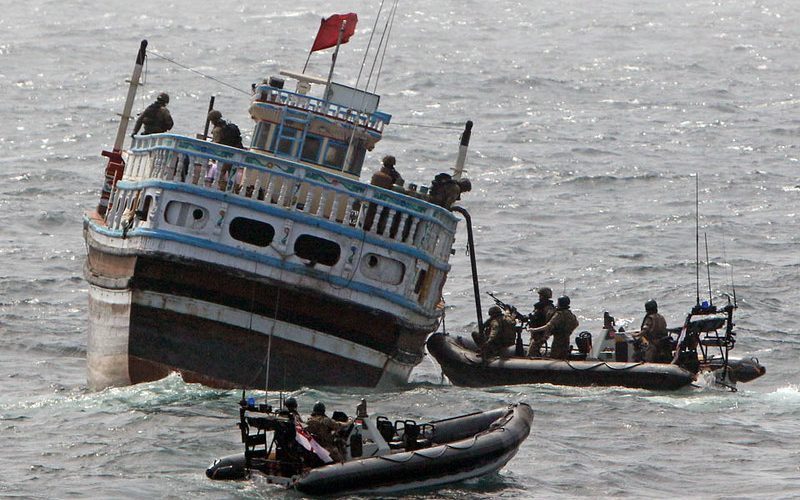
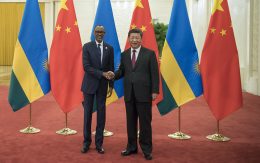

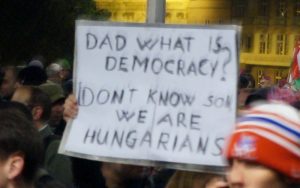
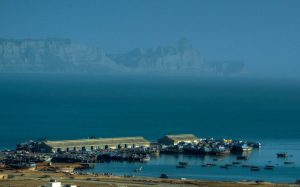
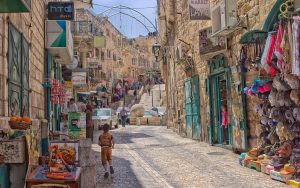

Be First to Comment